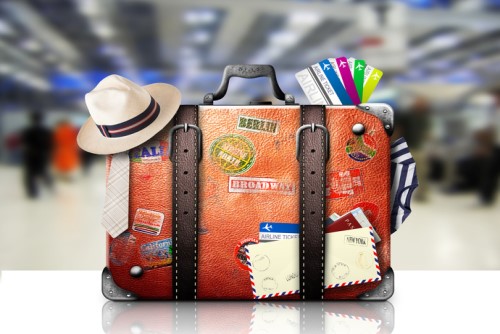

Southern Cross Travel Insurance has released a list of 40 top travel hacks that every traveller should know.
According to Southern Cross Travel Insurance, it is the little things that add up, and can lead to a perfect holiday.
“Use these travel hacks every time you travel, so you can avoid pitfalls and take advantage of the best opportunities available,” the insurer said.
Here is a selection of those tips that brokers can pass to clients, ranging from booking a trip to noting down your insurance contacts.
Booking hacks
Browse in an incognito window. When you search for flights, accommodation or rental vehicles online, turn on private browsing in an incognito window. Travel sites may be able to see how often you’ve checked their prices, and you could be charged more if they think you’re serious about booking.
Airport hacks
Veer to the left. Research shows that most people are right handed and tend to turn to the right first, so do the opposite. Go to the left and you may be able to move faster through airport security and customs.
Bring a portable charger. Arrive at the airport with a fully loaded portable charger and plug it in whenever possible. That way, you can keep your contacts, maps and itineraries close at hand by easily resuscitating your phone when it runs out of power.
Tie a ribbon on it. At the end of a long flight, it’s likely you’ll want to grab your luggage and escape the airport as swiftly as possible. Make luggage identification easier by tying a bright ribbon or colourful luggage strap on your bags so you can spot them easily.
Take photos of your parking space and luggage. Take photos of your parking space and your checked luggage before you embark on your flight. Wandering around an enormous car park is no way to end your holiday, so keep that parking space photo handy. Photos of your checked bags can also be very useful. If you encounter problems with lost luggage, you can show the pictures to airport staff, and they’ll know exactly what to look for.
Hacks for travelling in a new country
Be aware of pickpocketing. If you’re travelling in an area that is notorious for pickpocketing, carry a dummy wallet with you. Keep your real wallet close to your body in an inconspicuous place (such as an inside jacket pocket) and leave the dummy wallet in a back pocket with little or no change in it.
Safety hacks
Wear a medical ID bracelet. If you have a health condition that emergency medical personnel should know about, wear a medical ID bracelet and display the information on your phone. Some phones include a setting that allows this information to be seen without having to enter a password first.
Split up your valuables. Don’t carry all your valuables, such as passport, keys, phone, cash and credit cards, in one place. Split them between the safe at your accommodation, your day bag and leave some emergency cash hidden in your accommodation. If you’re travelling alone, get two hotel keys and put one in your wallet or purse and leave the other at the reception desk.
Save emergency numbers in your phone. Before you depart for your trip, save local emergency numbers in your phone. You can find this information on Wikipedia by clicking on your destination, which should have a police, fire and ambulance number listed.
Use extra caution. Spend some time researching any local dangers at your destination. Go to the Safe Travel website (www.safetravel.govt.nz), search for your destination and navigate to the ‘safety and security’ option. When travelling to a foreign country, it’s important to have your wits about you and follow a few general safety rules, such as never accepting drinks from strangers (no matter how friendly they may seem), only using official, reputable taxi companies, and staying in regular contact with friends and family at home so they know you’re safe.
Travel document hacks
Email yourself copies of your documents. Take photos of your passport, visa, itinerary, flight tickets, hotel confirmations, tour tickets, and any other important documents, and email them to yourself. At any time, you’ll be able to pull up the documents you need, even if you lose your phone (you can use an internet cafe to access your email). It’s also wise to keep hard copies in your carry-on and checked luggage.
Keep a copy of your travel insurance handy. You never know when you’ll need to use your travel insurance when you’re overseas. Keep a copy of your policy handy and put your insurer’s phone number in your contact list so you can easily reach them if needed.
